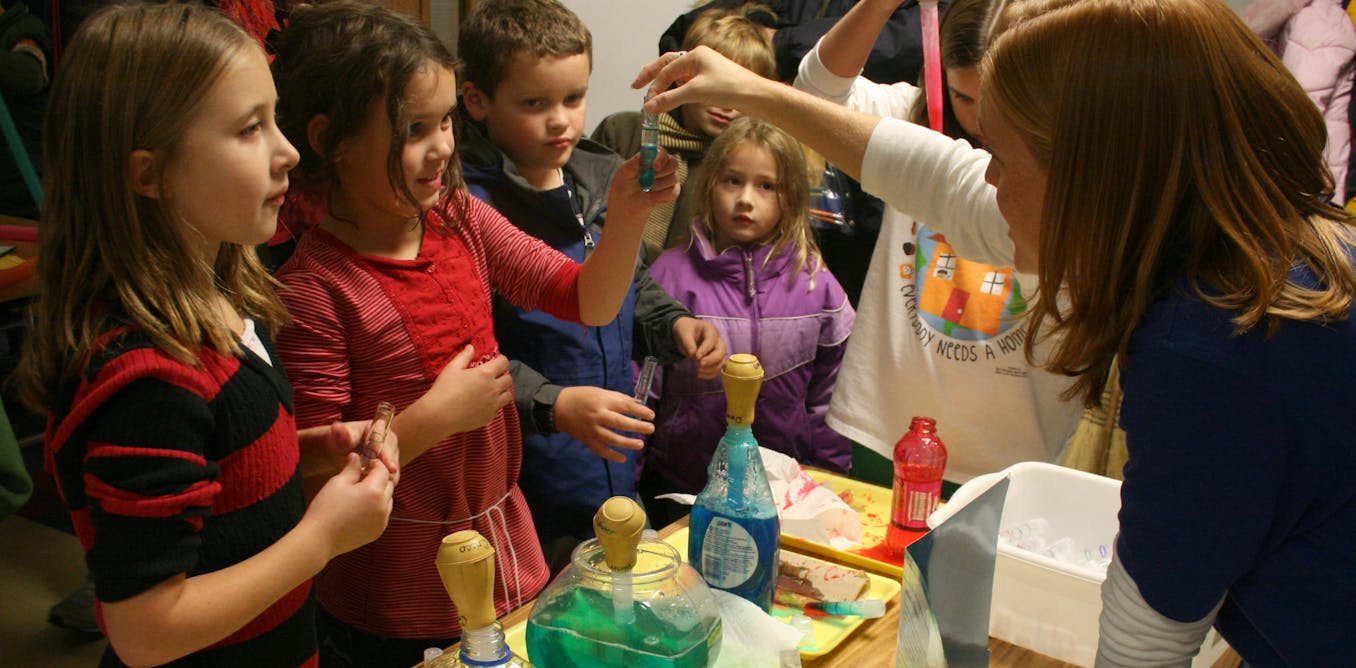
- Select a language for the TTS:
- UK English Female
- UK English Male
- US English Female
- US English Male
- Australian Female
- Australian Male
- Language selected: (auto detect) - EN
Play all audios:
It’s no secret that there is a lack of women in science-related careers. And it’s bad for the economy. While the Conservatives launched some good initiatives to address this problem in the
last coalition government, their polices were disjointed and did not result in any significant progress. The party should now grasp the opportunity to tackle the problem properly – linking
policies on education, career progression and childcare. The UK punches above its weight when it comes to science. Despite this, we are missing out on a huge amount of talent, as 50% of the
population is heavily under-represented in the discipline. The statistics are horrific: only 13% of all science, technology, engineering and mathematics (STEM) jobs in the UK are occupied by
women despite equal gender representations at A level and undergraduate level for many STEM disciplines. Across the whole of academia, women occupy only 17.5% of the top academic positions
in the UK, which is below the average proportion for the EU. Several universities are falling well short of that already low benchmark. The situation is even worse in the UK’s natural
sciences and engineering and technology, where only 7-9% of professors are women. Recent research shows that a diverse scientific workforce is more creative and better performing than a
homogeneous one. Such diverse organisations perform better financially, recruit from a wider talent pool, suffer lower staff turnover and increase creativity and problem solving capability.
LINKING POLICIES There are three key areas that the next government will need to tackle to make progress on this. Arguably the most important one is education. As highlighted by the former,
Conservative science minister Greg Clark, bringing the next generation onboard is a key priority for UK science to prosper in the future. However, what was missed by the Conservatives is
that we need to boost support for girls not only to consider an education in STEM subjects, but also to persist in the pursuit of a career. One of the most important factors here is the low
level of confidence among girls when it comes to science and maths, which has been recorded in a number of studies. Targeted action in schools is therefore needed to provide girls with
inspirational role models and to boost their confidence, which is especially important in mixed gender schools. Another crucial area is career progression. While some women may leave science
for perfectly good reasons, there is no doubt that others leave because they don’t feel valued and think they’re not good enough. Research has shown that universities presented with two
equally good CVs – one from a man and one from a woman – were more likely to want to hire the man. Most scientists are horrified to learn of their own personal bias; raising awareness of
unconscious bias and providing training to employers and managers is a quick-fix way to help scientists get over such prejudice. The third area that the next government can have a big impact
on is by providing better support for scientists who take career breaks to accommodate caring responsibilities such as parental leave. Scientific careers are in many ways more accommodating
of personal commitments than other demanding jobs. The next government should embrace this, by supporting more affordable and on-site childcare for scientists. More funding opportunities
should also be provided for parents returning to science after taking a few years out to raise a family. But why stop there? The fact remains that women are still far more likely to take out
parental leave than men, despite the fact that many men would appreciate spending more time with their children. To really boost gender equality across all careers, the government should
put policies in place to encourage more men to share parental leave. OBSTACLES TO SUCCESS The next government will need to work with universities, funding agencies and research institutes to
ensure women are better supported through their career path. But getting to grips with the problem will not be easy. While we know that role models, mentoring, and personal development
programmes all have positive impacts on women’s careers in science – particularly on junior women – implementation will not be straightforward. For example, the extra demand that mentoring
puts on the diminishing number of women that are senior scientists earns them no recognition in the established programme for assessing university performance (Research Excellence
Framework). In short – if academics invest in mentoring the next generation, their research “credentials” suffer. But the new government has the power to shift this imbalance. A subtle,
re-emphasis towards valuing mentorship and investment in the scientific workforce will help promote a more positive environment for all. One step in this direction is the implementation of
the Athena SWAN awards – essentially badges of equality for university departments and research institutes. These awards encourage departments to set new standards for themselves to achieve
in their promotion and support of equality and diversity. Mentoring is a key part of this. But we need an official way of recognising the contributions of those who invest in mentorship.
Perhaps the biggest challenge of all is overcoming the stereotypes and prejudices that are embedded in our culture and put women off science. The sooner we realise that women make equally
good scientists as men and that men that men make equally good parents as women, the easier it will be to change things. While such cultural change can take time, having the right policies
in place can certainly speed things up. The next government has the power to prevent financial and intellectual loss from the UK’s scientific community, but to achieve this they will need to
properly connect policies on science, education and wider societal and welfare issues.







